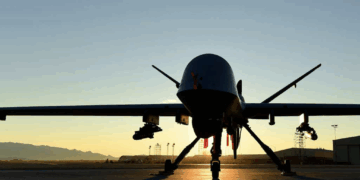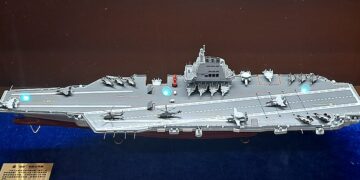August 2, 2022
Grandstanding over Taiwan risks cross-Strait military escalation
FOR IMMEDIATE RELEASE:
August 2, 2022
Contact: press@defensepriorities.org
WASHINGTON, DC—Today, House Speaker Nancy Pelosi began her anticipated visit to Taiwan where she will meet with Taiwanese officials. Defense Priorities Director of Asia Engagement Lyle Goldstein issued the following statement in response:
“Taiwan is not a playground for U.S. politicians. The security situation in the Taiwan Strait is delicate and hinges to a large degree today on safeguarding the ‘One China’ policy that has preserved the peace for decades. That policy came about as the result of a fundamentally correct rethink of U.S. foreign policy back in the 1970s and has brought about a much more peaceful world. It is no exaggeration to say the future of humanity may depend on a pragmatic U.S.-China relationship—House Speaker Nancy Pelosi’s trip to Taiwan needlessly jeopardizes regional stability.
“China’s rising and already very substantial power cannot be ignored or wished away with fine rhetoric. While some countries in the region may prudently wish to increase their own defense expenditures, Washington can no more determine the outcome in the Taiwan Strait than it could determine the future of Afghanistan. Indeed, U.S. intervention in this explosive situation could make matters substantially worse—an all too common theme over the decades from Washington’s irresponsible decision-making.
“To be sure, Taiwan may want to form itself into a ‘porcupine,’ but this may imply digging more bunkers, pouring more concrete, and much more serious training for reserve units rather than buying shiny, new weapons systems from the U.S. like additional fighter aircraft. As demonstrated in Ukraine, some American weapons, such as Javelins, could be very helpful to improving Taiwan’s own A2/AD-style shield, but self-reliance will be Taiwan’s best defense because the U.S. would be unable to adequately supply weaponry to Taiwan in an actual cross-Strait war.
“The U.S. has no vital interests at stake in Taiwan and should no more risk nuclear conflict for this island, a mere 90 miles off the Chinese coast, than it did for Hong Kong. Perhaps if Rep. Pelosi and other congressional leaders truly understood the related national security risks of direct U.S.-China military conflict, they would be less cavalier in putting Americans into the line of fire. This foolish political stunt is unlikely to cause a war in itself, but it will only accelerate the sad process of sleepwalking into a global and national catastrophe at some unspecified time in the future. Preserving Washington’s One China policy and strategic ambiguity are the best approaches to maintain Taiwan’s autonomy.”
More on China

Featuring Lyle Goldstein
December 9, 2025

December 4, 2025

Featuring Lyle Goldstein
November 14, 2025






